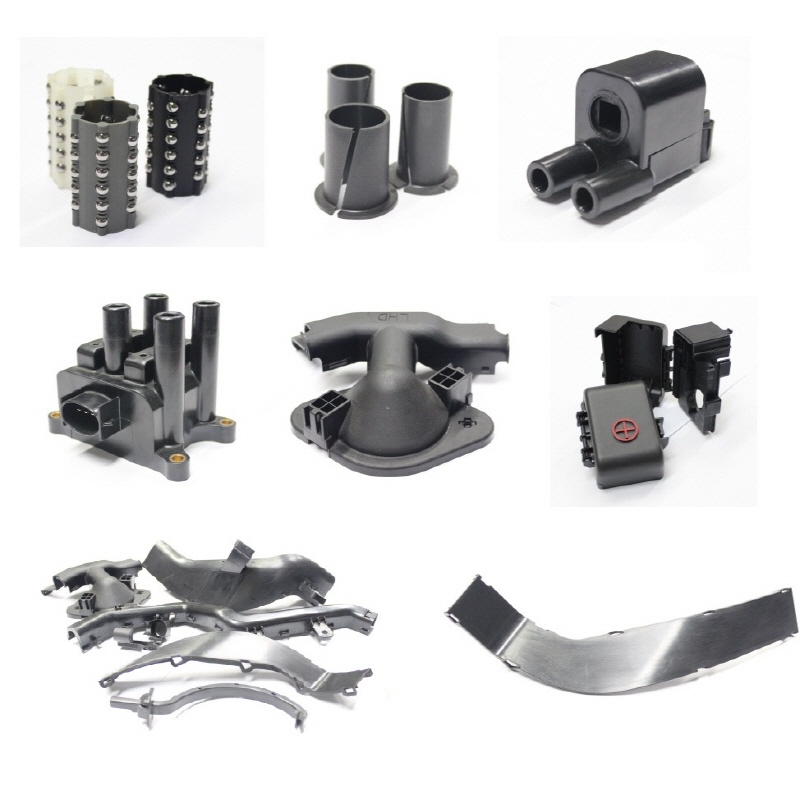The key point is that consumers not only do not enjoy the benefits of lowering the price of oil, but also fully assume the increase in consumption tax. Any adjustment to any type of tax, at least the part that is adjusted, will result in a different sharing between producers and consumers. Some commodities have great elasticity of demand, that is, consumers have greater substitution and selectivity, then producers share more; some products have less elasticity of demand, so consumers have to share more. Auto parts are the various units that make up the entire car and a product that serves the car. There are many types of auto parts. With the improvement of people's living standards, people consume more and more cars, and the market for auto parts becomes larger and larger.
The classification of auto parts can generally be divided into: engine parts, power train parts, brake parts, steering parts, driving parts, ignition parts, fuel parts, cooling parts, lubrication parts, electrical instrumentation parts and body Accessories.
Abs Plastic Injection Molding,Prototype Plastic Parts ,Injection Molding Pressure,Vacuum Injection Molding Sung Precision Mould & Plastic Co., Ltd. , https://www.dginjectionmolding.com
When the international oil price continues to decline and a new round of domestic oil price adjustment window is about to open, the Ministry of Finance and the State Administration of Taxation announced that they will adjust the consumption tax on some products such as refined oil from November 29. Among them, the tax on gasoline consumption tax increased by 0.12 yuan / liter, and the diesel consumption tax increased by 0.14 yuan / liter. This is the first adjustment of refined oil consumption tax since the reform of refined oil tax in 2009, which also means that the “nine-day losing streak†of domestic refined oil prices has failed.
The Ministry of Finance explained that it is important and necessary to appropriately raise the consumption tax on refined oil products, including rationally guiding consumer demand, promoting the conservation and utilization of petroleum resources, reducing air pollutant emissions, and promoting the development of new energy industries. The relevant departments have also painstakingly chosen the timing, that is, the oil price has been falling continuously, which will not have much impact on the consumption habits of residents, and the pressure and opposition voices are relatively small.
It seems that the price of refined oil and the consumption tax can be combined into one. Anyway, regardless of the tax, it will ultimately be reflected in the price. Moreover, it is said that this increase in the amount of refined oil consumption tax is equivalent to the amount of price reduction, so the increase and decrease of each other offset each other, so the domestic oil price remains unchanged. This is equivalent to a paper document, and both things are done. However, the formation mechanism of refined oil prices is the formation mechanism of refined oil prices. The adjustment of consumption tax is the adjustment of consumption tax. It should not be bundled together and confused.
As we all know, the current formation mechanism of refined oil prices is that the National Development and Reform Commission adjusts domestic refined oil prices according to the changes in crude oil prices in the international market. The adjustment period is 10 working days. First of all, its executive body is the National Development and Reform Commission, which is obviously different from the consumption tax. Second, this mechanism operates independently and is sustainable and should not be interrupted by other factors. Now that the international oil price has fallen, and it has reached the adjustment window of domestic oil prices, then it should be adjusted so as to meet the public's expectations.
Of course, the consumption tax can be adjusted at the right time, but it goes hand in hand with the adjustment of refined oil prices. It seems that there is more than one procedure, but this is by no means a slap in the face—the price of refined oil is lowered, the consumption tax is raised, offsetting each other, and the total price is still the same—but more legitimized and more convincing. Moreover, it is doubtful that the increase in the consumption tax is exactly the same as the decline in the price of refined oil. Previously, many market analysts predicted that the price of gasoline and diesel would be reduced by about 0.18 yuan per liter, which is different from the execution rate of consumption tax. This means that the price of refined oil will remain unchanged in the clear, but it may increase in price, because it should have dropped more.
The key point is that consumers not only do not enjoy the benefits of lowering the price of oil, but also fully assume the increase in consumption tax. In nominal terms, the consumption tax is the kind of tax that consumers should bear – but which kind of tax does not ultimately reflect the price, and consumers pay for it? The problem is that any tax adjustment, at least the adjustment, will result in a different sharing between producers and consumers. Some commodities have great elasticity of demand, that is, consumers have greater substitution and selectivity, then producers share more; some products have less elasticity of demand, so consumers have to share more. Considering the monopoly nature of China's petroleum industry, when the relevant departments adjust the consumption tax, there is reason to let the producers undertake part of the adjustment of the consumption tax, instead of turning the consumption tax completely to the consumer to undertake the adjustment of the refined oil price adjustment window. .
